Webinar Recap: Increasing Auxiliary Revenue Through Entrepreneurial Thinking
Generating non-tuition revenue is one of the most important priorities for auxiliary professionals. With this goal in mind, SPARC members Jana Blackwell of Pine Crest School and Karen McCann McClelland of Sidwell School presented a webinar on how to create and utilize an entrepreneurial mindset to increase auxiliary revenue.
Critical Entrepreneurial Skills
With an emphasis on “thinking outside the box,” Blackwell and McClelland first discussed the necessary entrepreneurial skills auxiliary leaders need, including creative, analytical, and strategic thinking, strong business acumen, and an ability to foster positive relationships. Leveraging these skills is what leads to creative auxiliary programming and new avenues for increasing revenue.
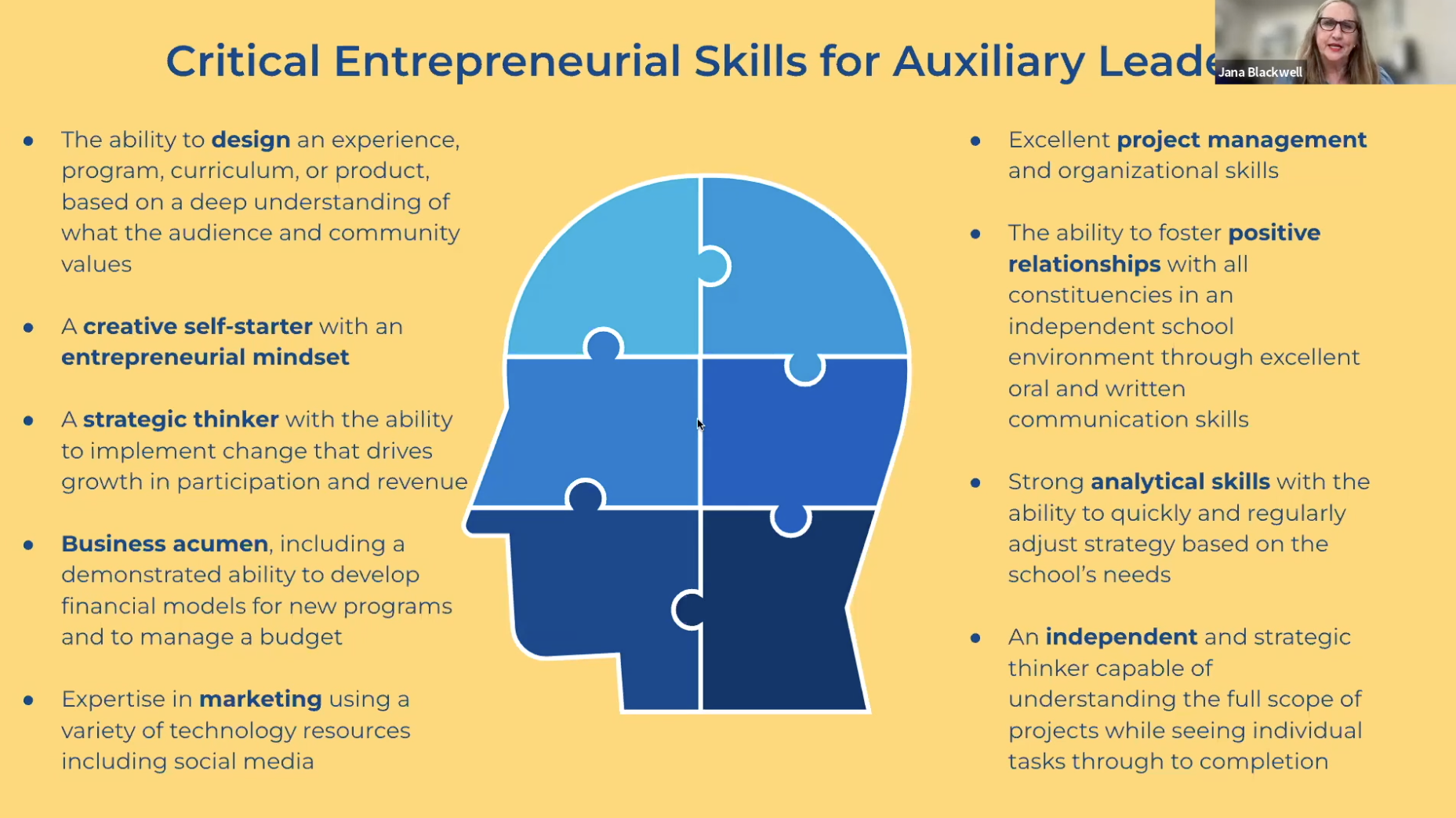
Start with the Why
It's crucial to focus on the "why" of your programs when determining your mission and vision. For example, after defining the mission and goals of their programs, Blackwell and McClelland both listed the same top three priorities, but in a different order. This affects their decision making when creating new programming and services.
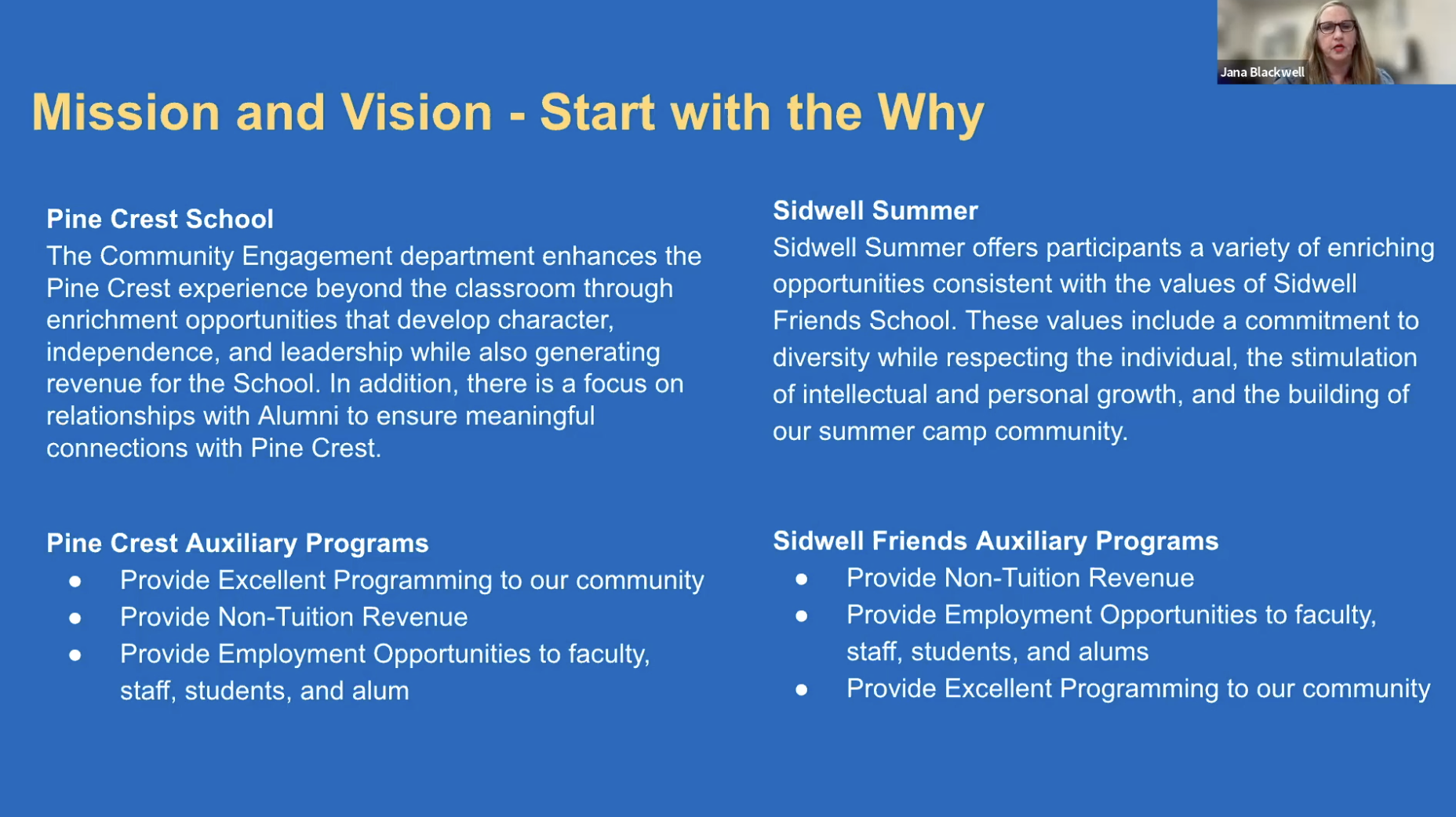
The Power of Partnerships
Auxiliary partnerships offer a range of benefits for auxiliary programs by creating new contacts and strengthening ties within the school and community. These partnerships can be found in or outside of the school, with individuals or with businesses, and with vendors, colleges, or interest-based organizations.
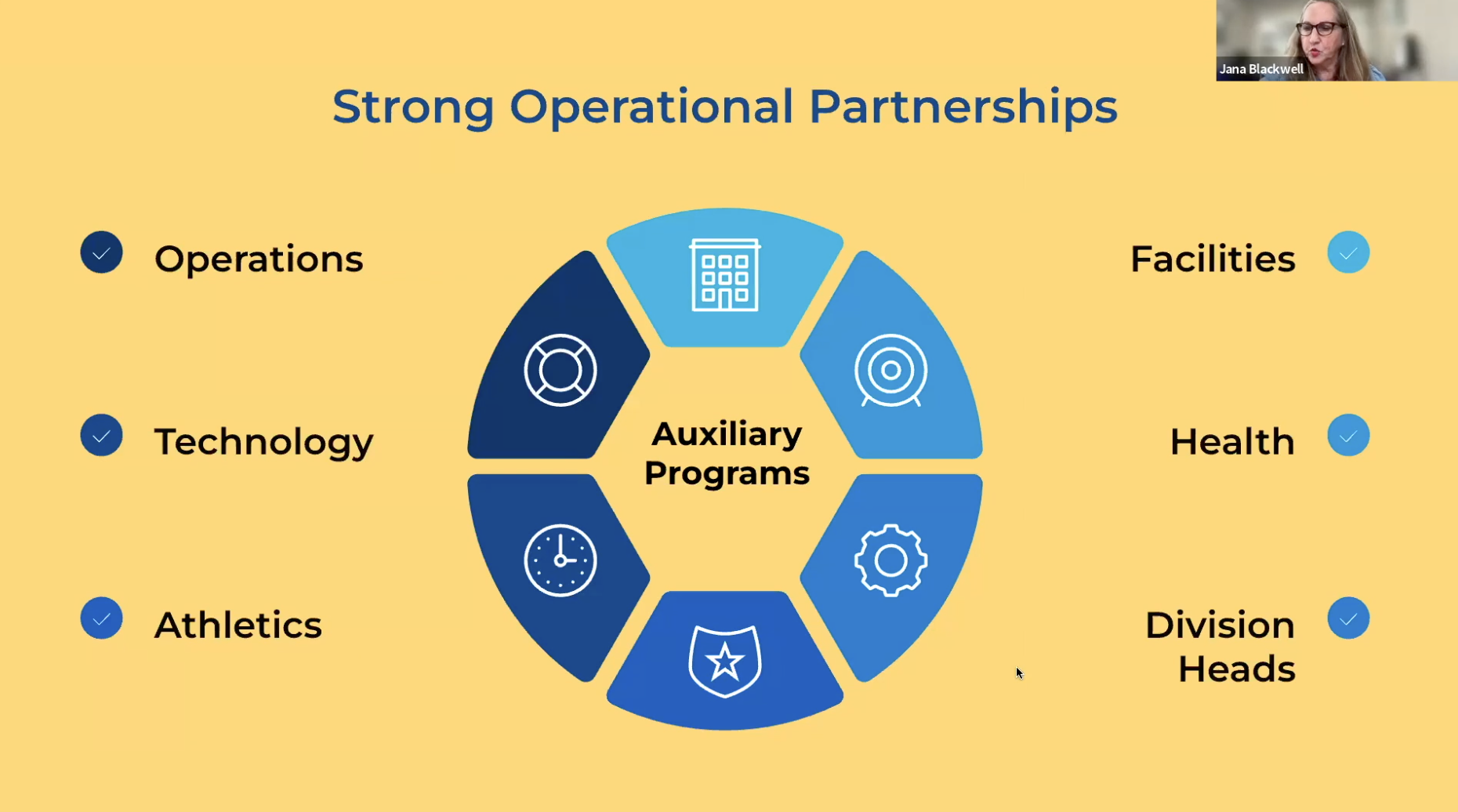
Working within the school with other departments is of particular benefit because it creates a win/win scenario by streamlining processes and sharing resources. Blackwell shared several successful new processes her department designed by partnering in-school. For example, auxiliary was able to take on non-tuition billing and administrative tasks for processes like student parking and travel, computer repairs, library fees, etc.
Working within the community creates new and vital partnership and program opportunities. McClelland's program has partnered with colleges and universities, college students, non-profit organizations, and vendors to create programs that otherwise wouldn't be possible.
Creative and Academic/Enrichment Programming and Trends
To spark some outside-the-box thinking, Blackwell and McClelland offered ideas they found successful when coming up with new, income-generating programming.
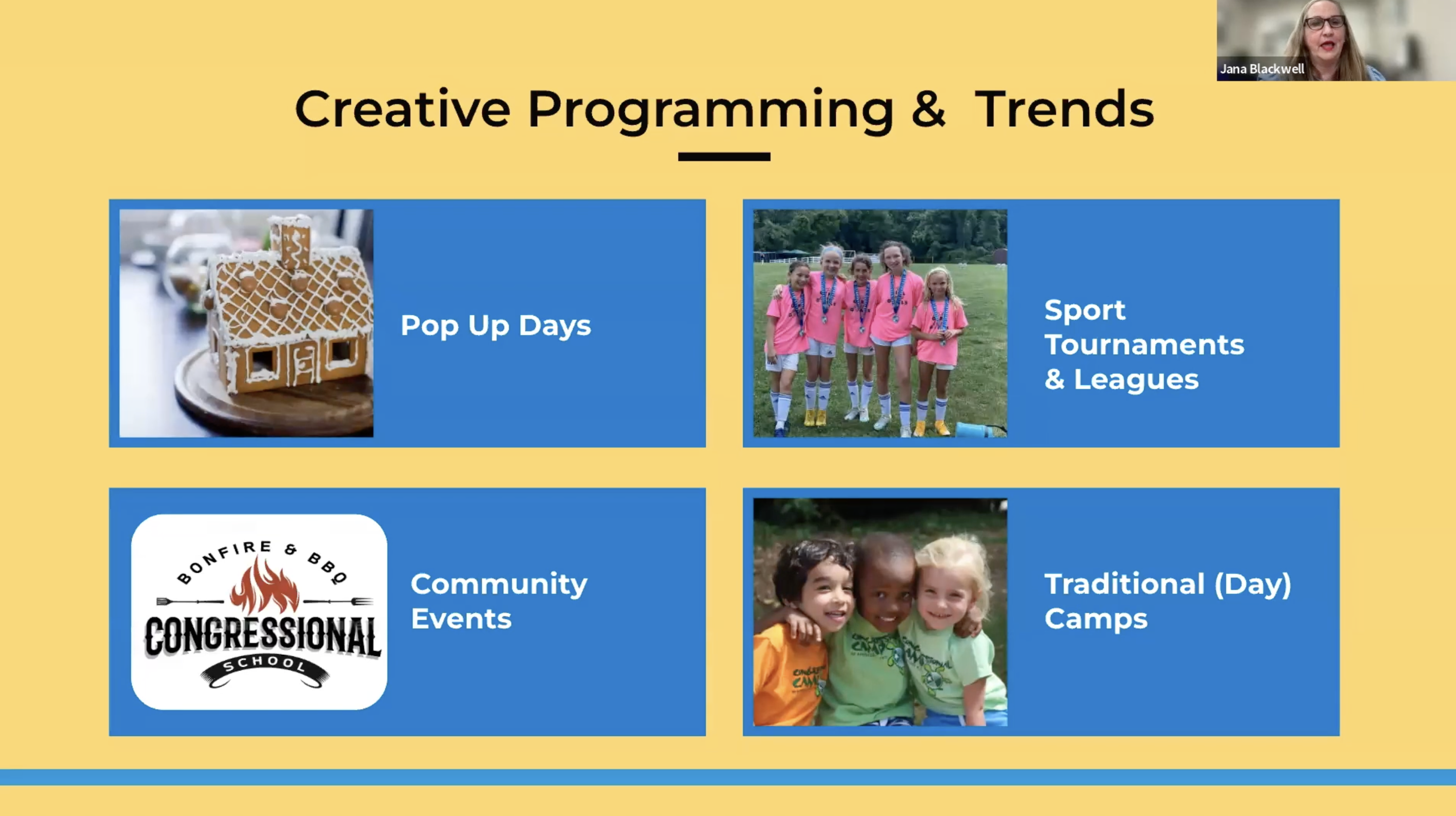
Blackwell found that pop-up programming--fun events that last only an afternoon or a day--were particularly helpful after COVID to encourage students to come back to out-of-school activities. She found faculty and staff were more able to commit to these short-term programs, and there was less risk if the idea didn't work out. The pop-up activities were so successful that they became a regular part of Pine Crest's auxiliary programming.
As an example of a creative approach to academic/enrichment programming, McClelland asked her staff to reach out to faculty and ask what subjects they were passionate about. They then designed programming around those passions. She mentioned discovering that their librarian had a love for theatre, and they now teach a theatre class that otherwise would not exist.
By building on the successes and failures of these smaller programs, you can adapt or scale them in whatever way suits the needs of your school and your students.
Aligning with the Strategic Plan of Your School
As much as possible, ask yourself how your new programming ideas fit in with the higher strategic plans of your school. Blackwell and McClelland provided a list of questions to help determine how and where your program aligns with the school's priorities.
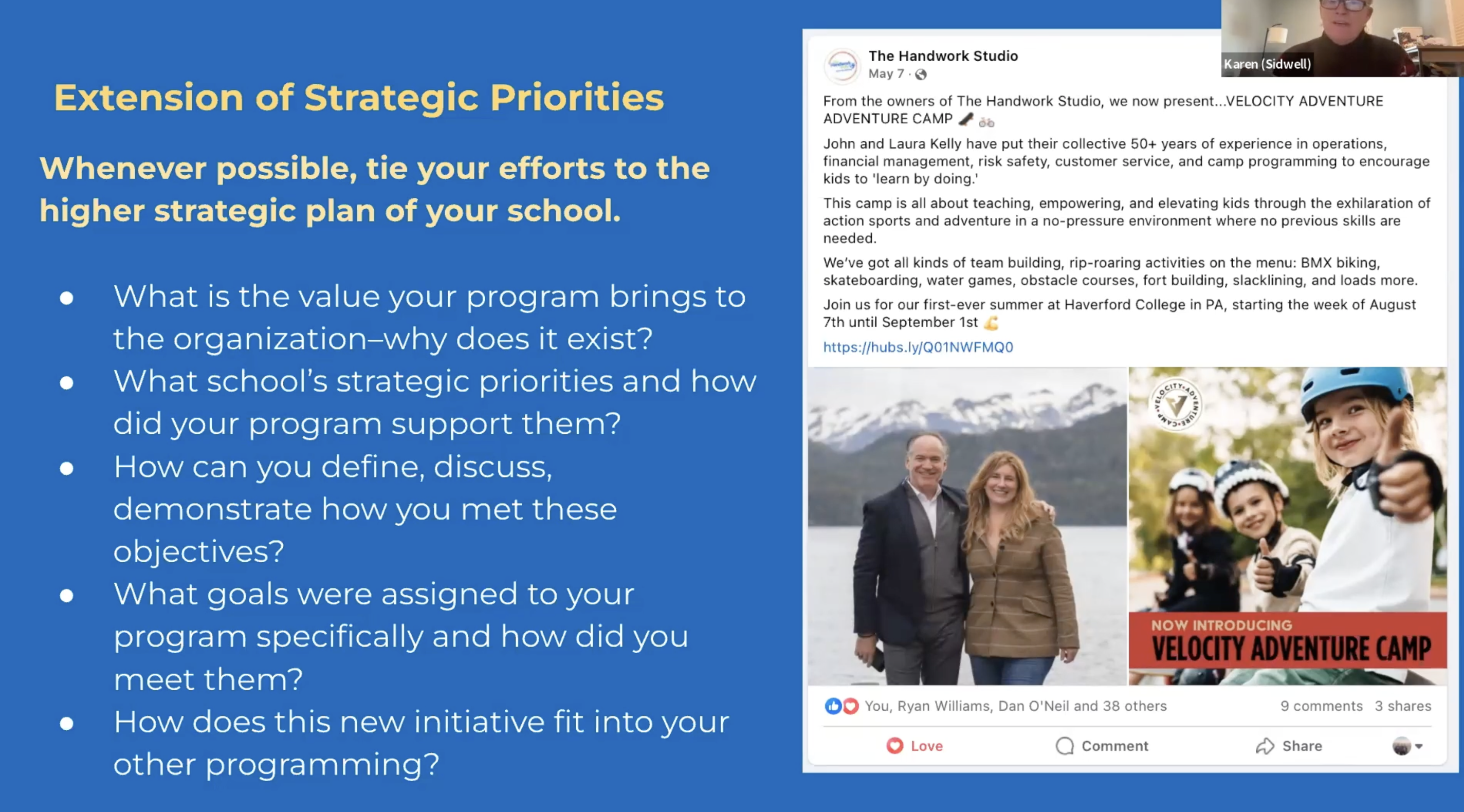
Examples given included new programs that create year-round employment opportunities for faculty and staff, support DEIJ initiatives, and work toward meeting admission and recruitment goals by exposing potential new students to the campus. Similarly, creating events that familiarize newly-enrolled students with the campus, faculty, and staff can set them up for success. And all of these ideas can generate revenue.
Cultivating and Redefining Community
Auxiliary departments are in a unique position to reach out to the community at large and offer non-traditional programming that supports students and strengthens community relationships.
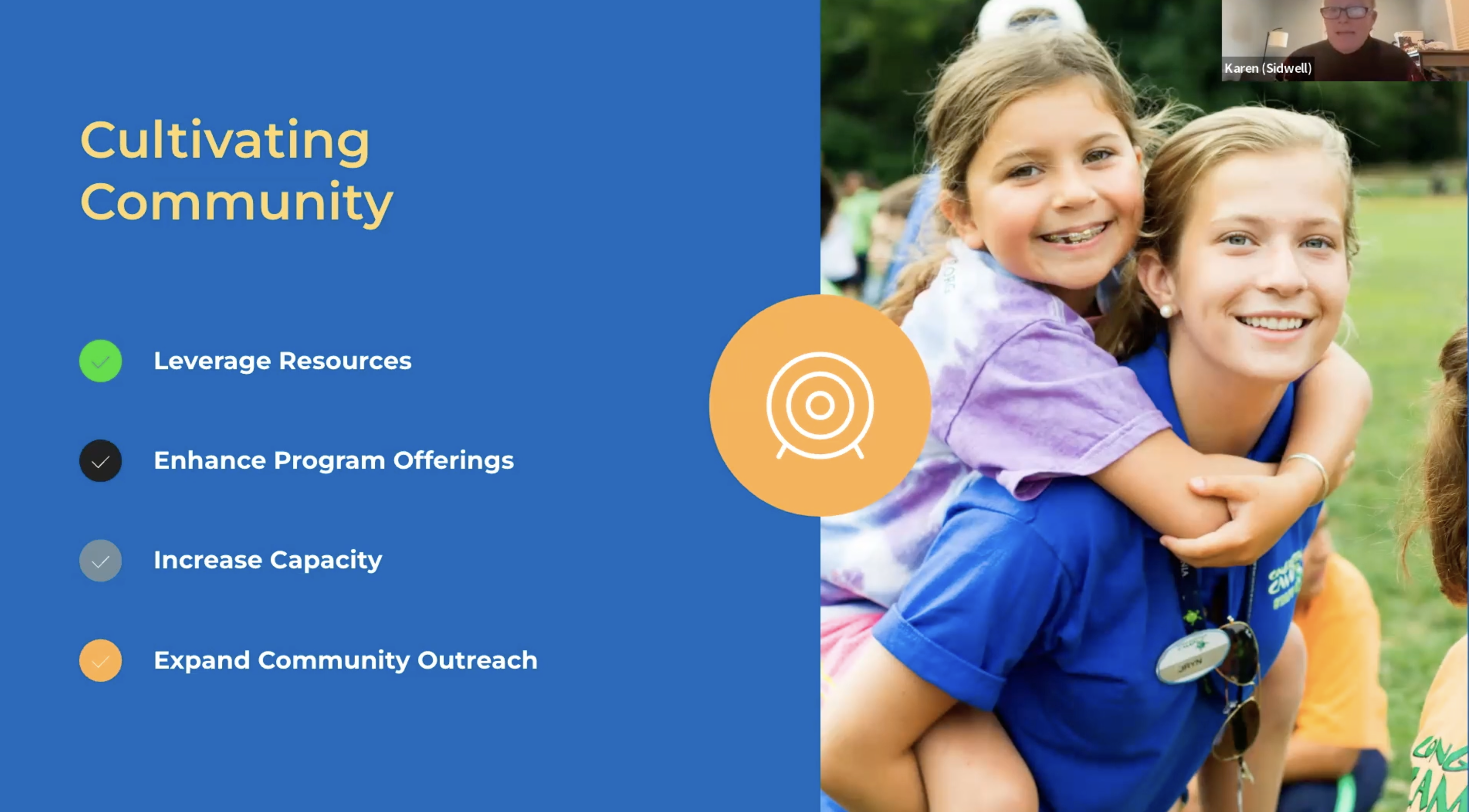
In 2021-2022, Pine Crest School offered 21 days of pop-up events that included making gingerbread houses, hosting a fun swim day, and learning a popular dance taught by cheerleaders. These small events added up to $13,467 in revenue. The following year, that number increased to $22,610. By meeting the community where they were--post-COVID and needing fun, safe, short commitments--they were able to both serve their families and generate new revenue.
Providing Auxiliary Support During the School Year
Entrepreneurial thinking also means discovering new ways auxiliary can support other departments during the school year. This can include offering supportive programming or handling administrative tasks such as billing and scheduling.
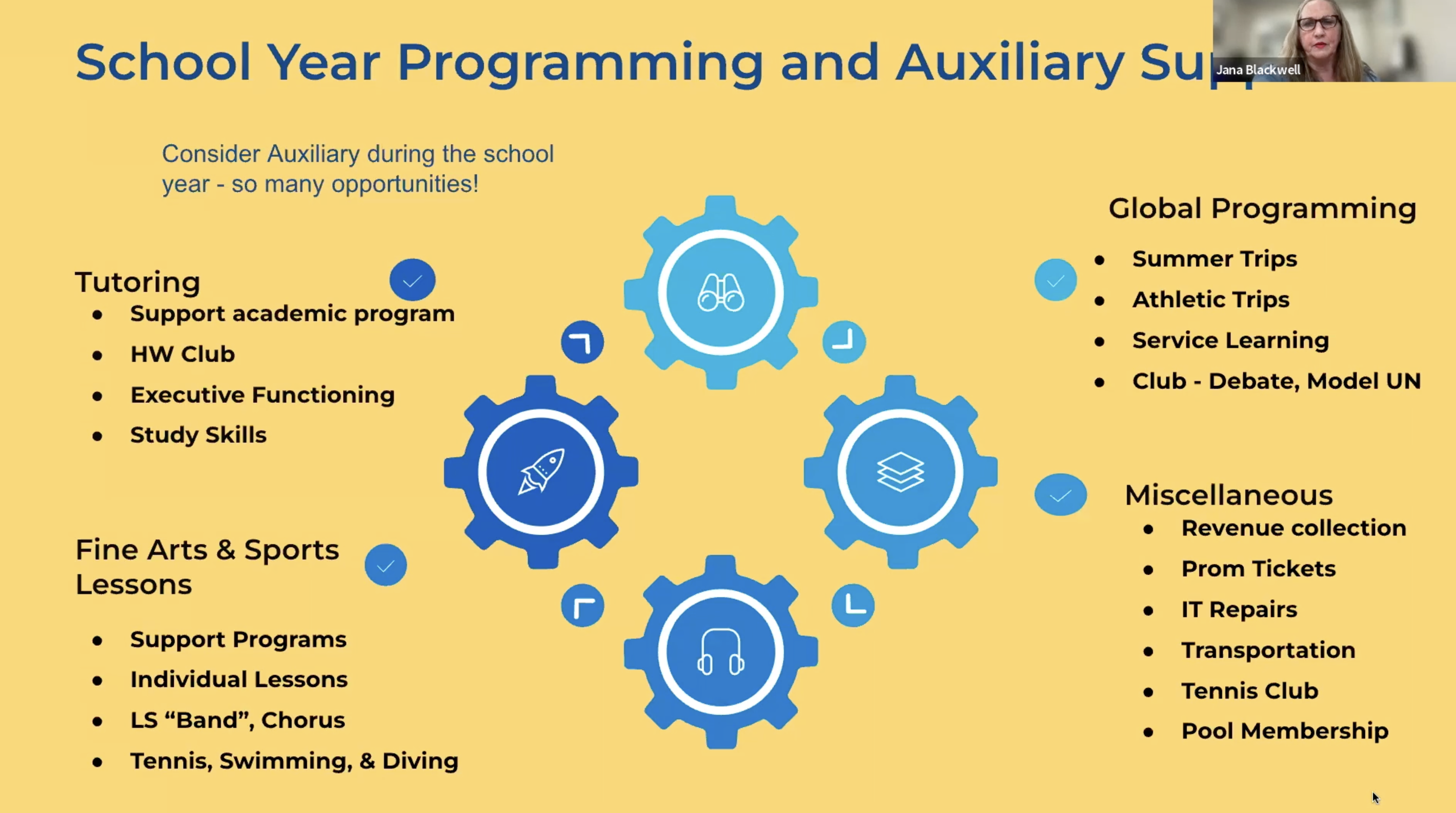
A world of opportunities exist within your school that allow you to reach out and strengthen relationships with other departments while finding ways to increase revenue.
Additional Revenue: School Store/Café and Rentals
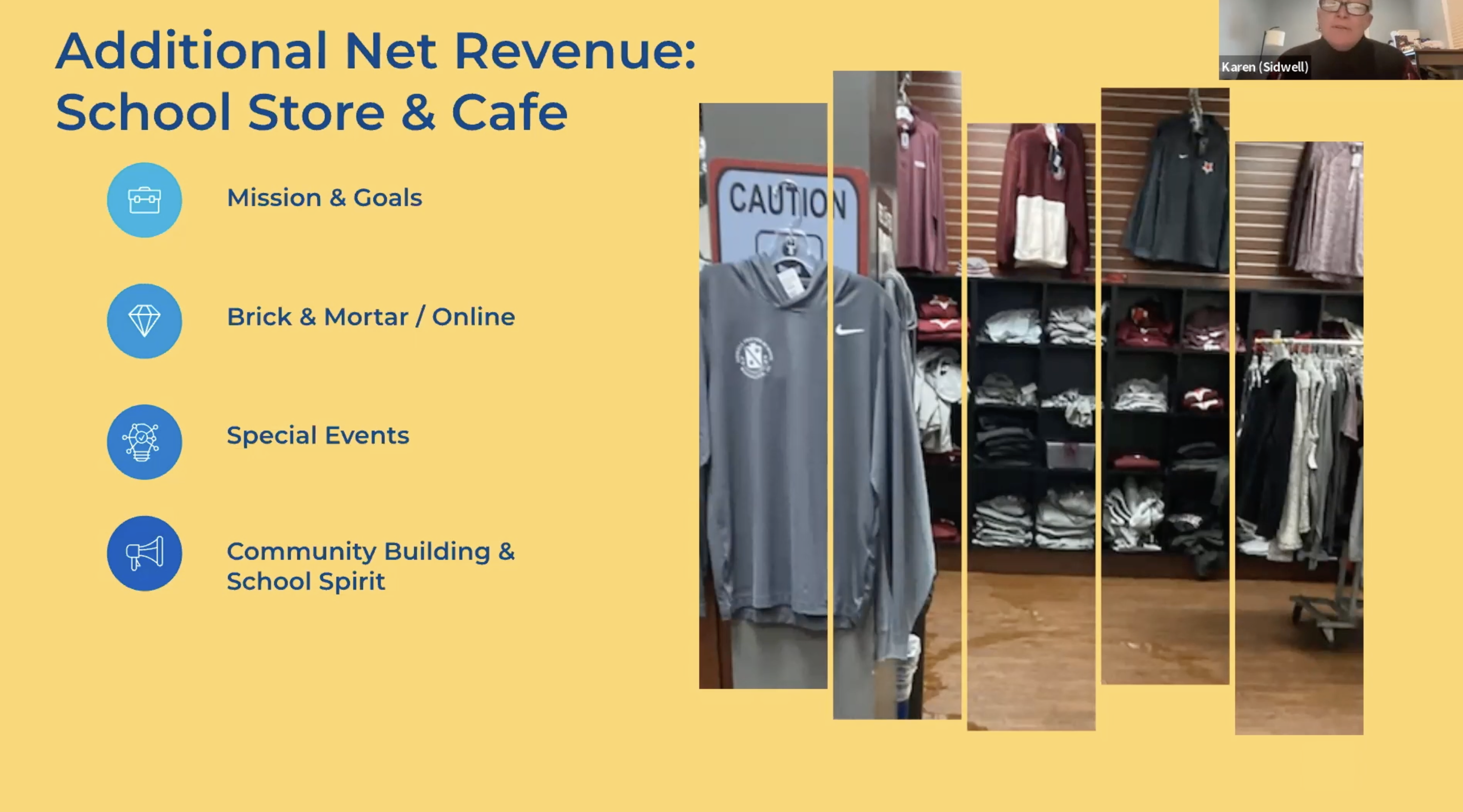
McClelland emphasized the importance of a school store and café for generating revenue. Auxiliary can run the store during school hours and special school events to bring in extra revenue and use it as a venue for certain programs. She also stresses the importance of branded merchandising like sweatshirts and drinkware. Wearing the school logo helps to strengthen the bond students and their families have with the school.
If you decide to rent school facilities to generate extra revenue, it's crucial to define what your mission and goals are and to develop strong rental policies. Clear communication with all involved departments is a must, as well as following a well-defined workflow process.
Financial Opportunities ("No Mission Without a Margin")
When creating new opportunities for generating revenue, Blackwell said that although the possibilities are endless, your choices are guided by your mission and goals. Your priorities should be effectively defined and developed, then clearly communicated to the school. She also stressed not being afraid to take risks and try something new. A failed event can lead to something very successful later.
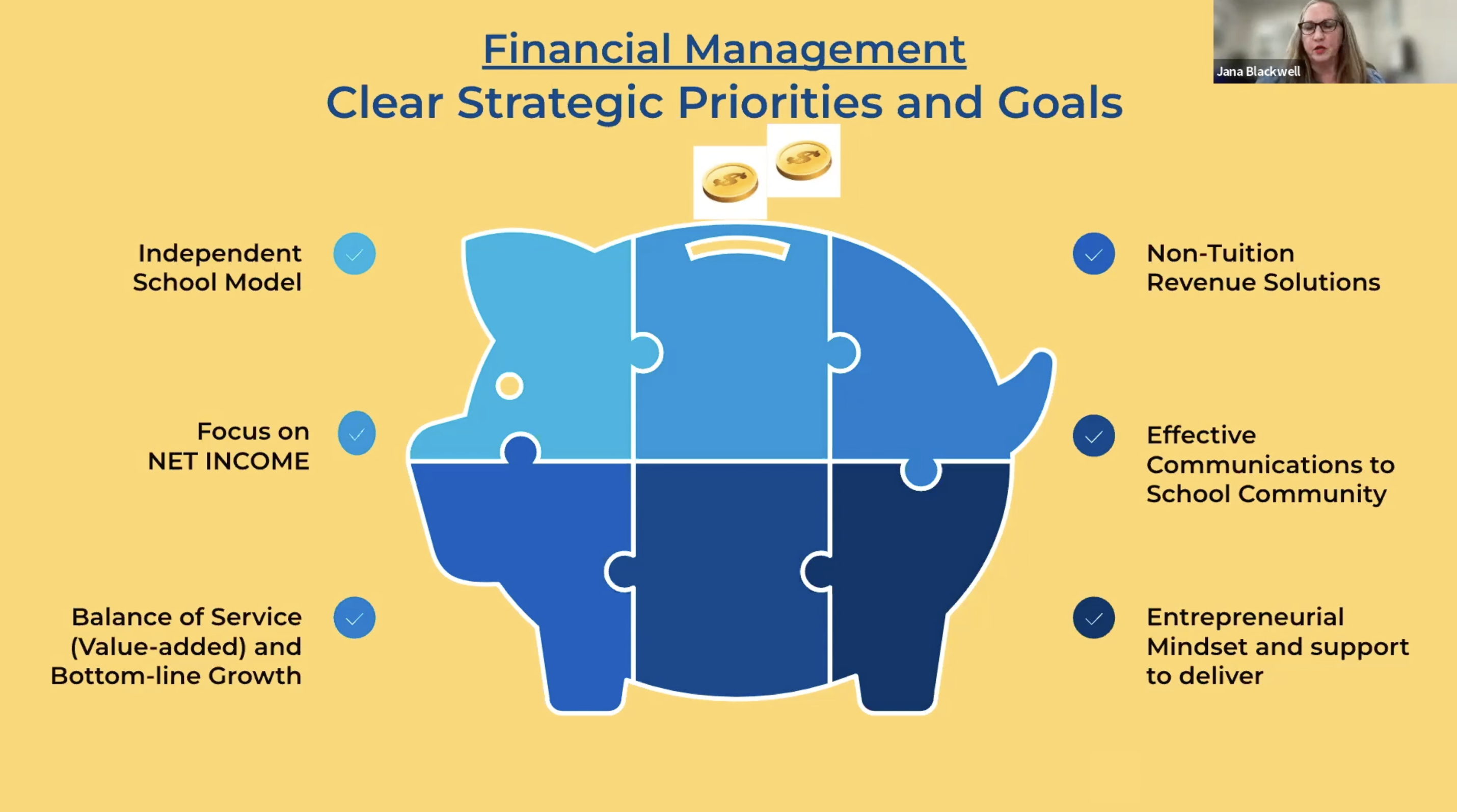
A Solid Financial Foundation for Auxiliary Leadership
A strong grasp of financial knowledge is crucial to fully leverage an entrepreneurial mindset. Partnering with the business office will help auxiliary leaders and staff learn about the budget, margins, auditing, etc. and deepen their understanding of their role in the school as part of a business.
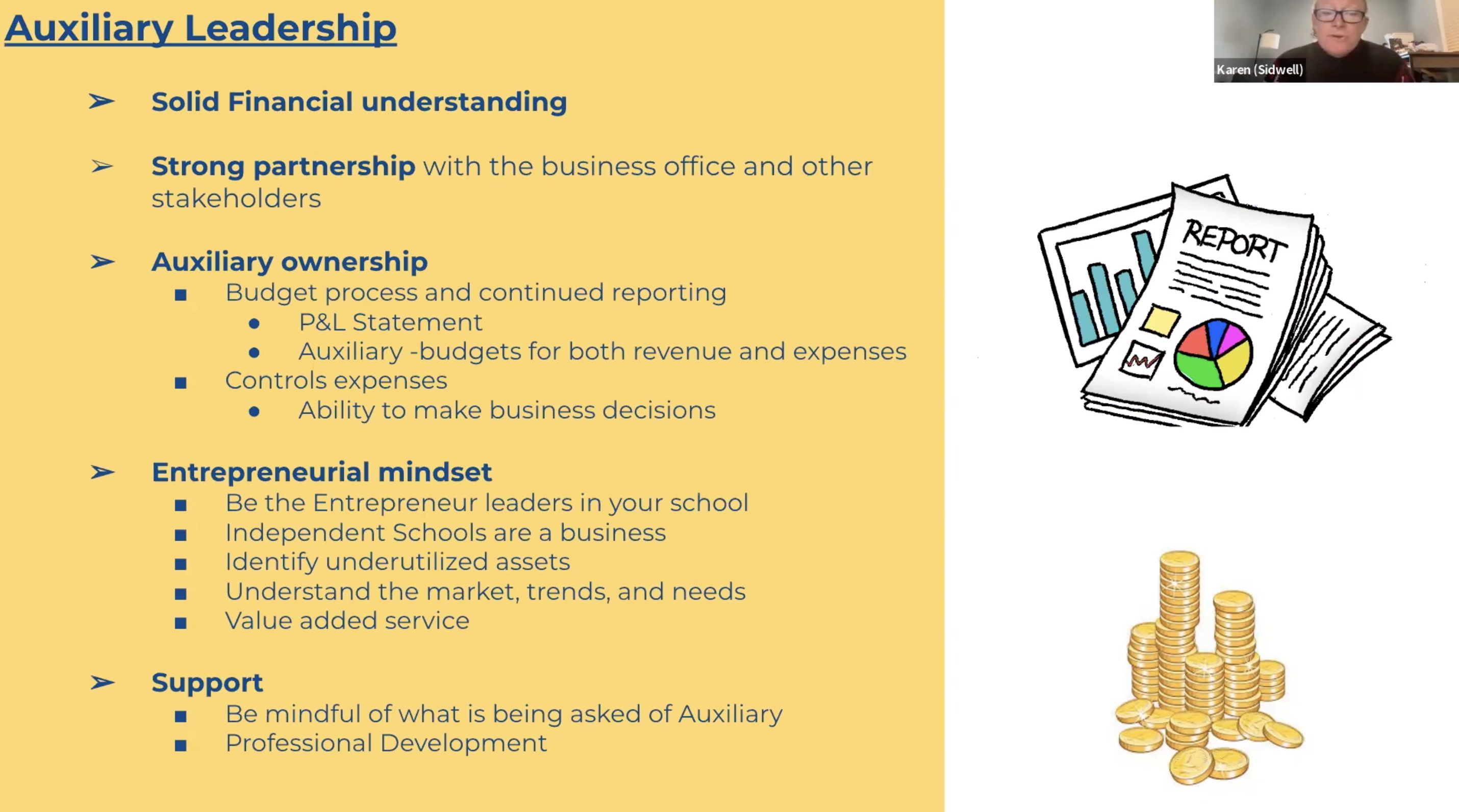
McClelland offered a Sidwell School case study referring back to the programs that resulted from her staff reaching out and making new connections. By trying new programs, especially small, adaptable, scalable projects, they were able to bring in more revenue and discover creative new ways to serve their students.
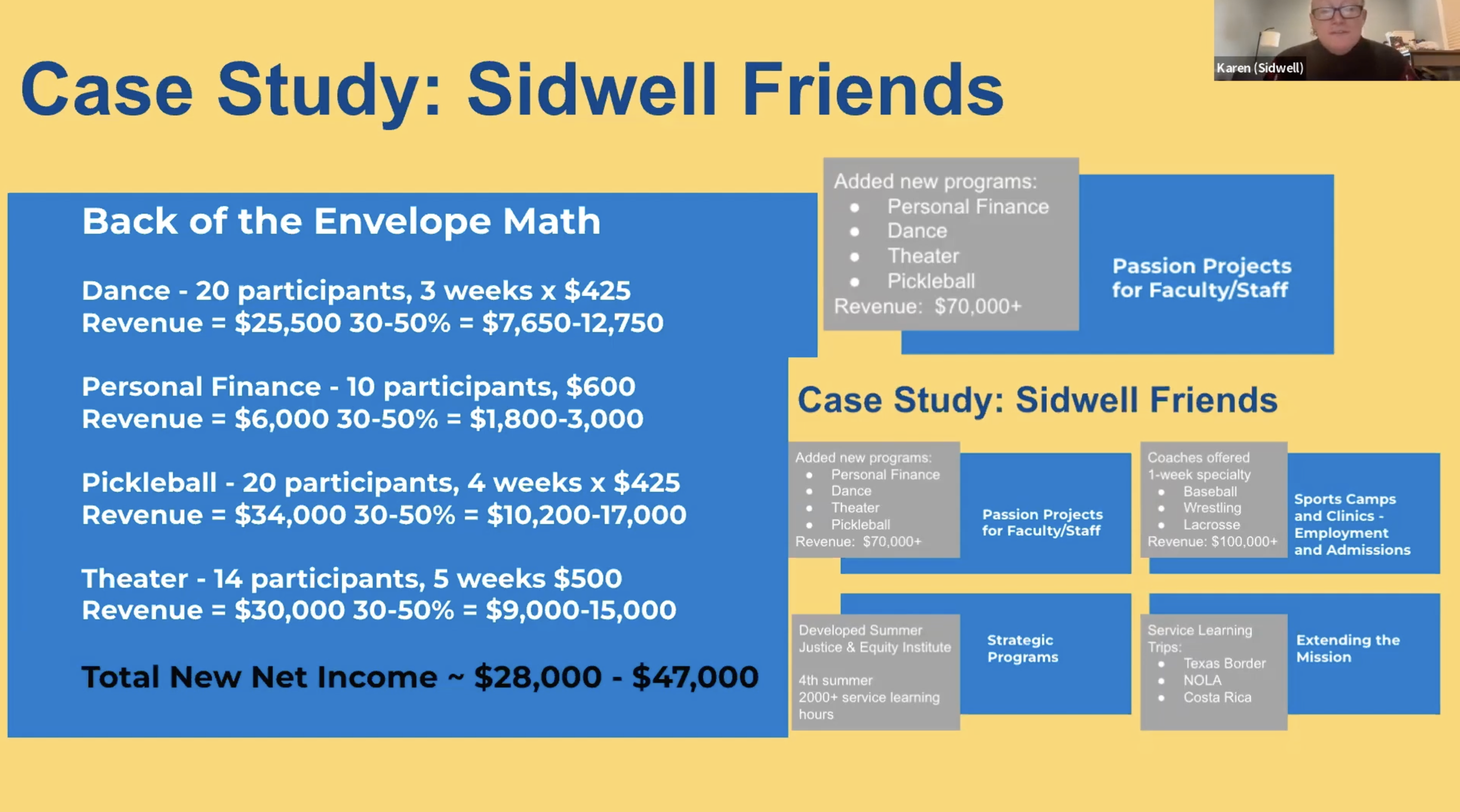
Action Steps: Where to Start?
Blackwell and McClelland provided a checklist to help you get started using your entrepreneurial skills as an auxiliary leader. Of particular importance are clearly defining compensation for employees, communicating with transparency, and making sure the school leadership knows what you need so you can get the proper support for your programs.
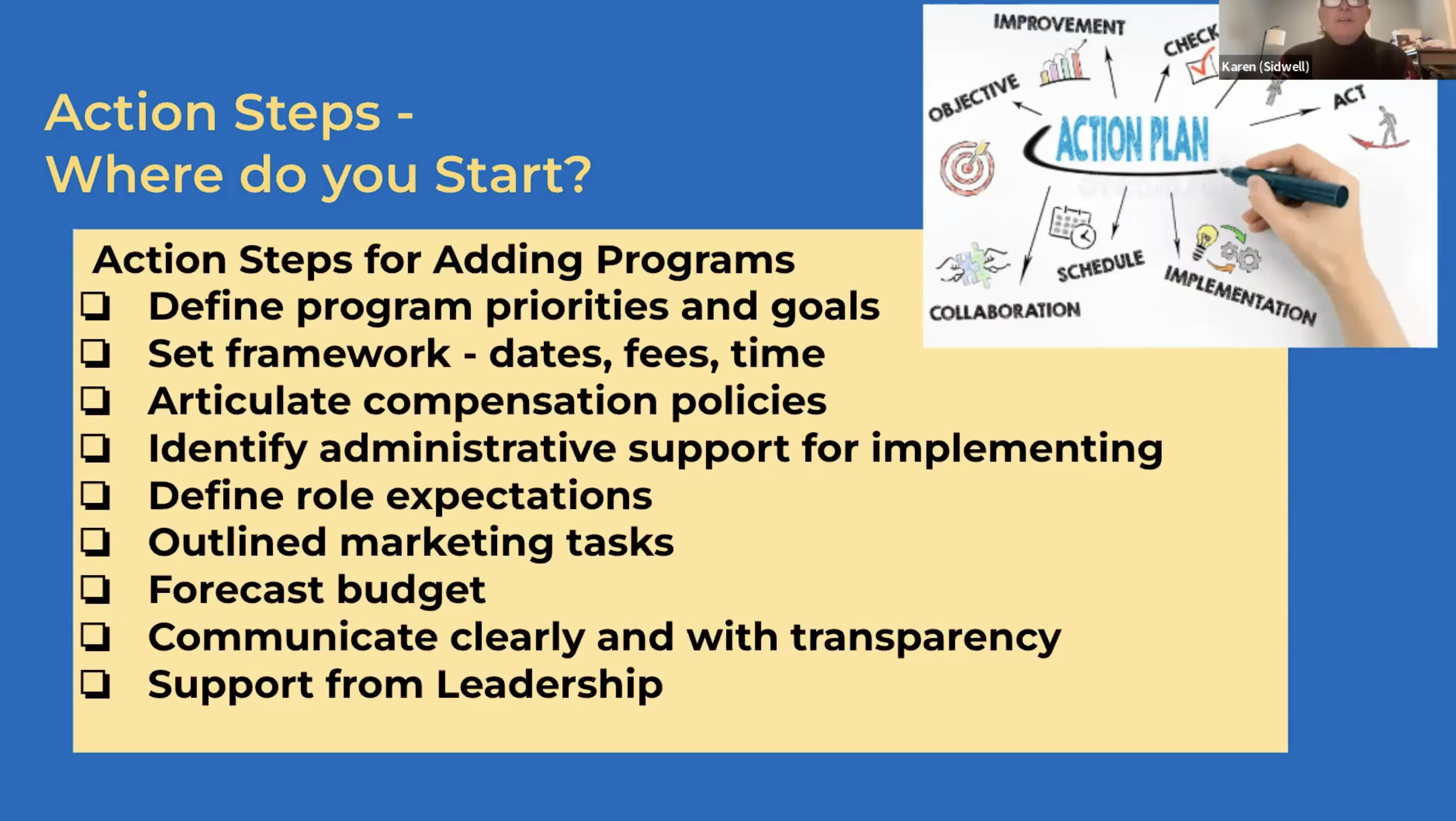
Click here to watch the full webinar.
Jana Blackwell is the Executive Director of Community Engagement at Pine Crest School in Fort Lauderdale, Florida
Karen McCann McClelland is a SPARC Senior Advisor and the Director of Auxiliary Programs Sidwell School in Washington, D.C.
